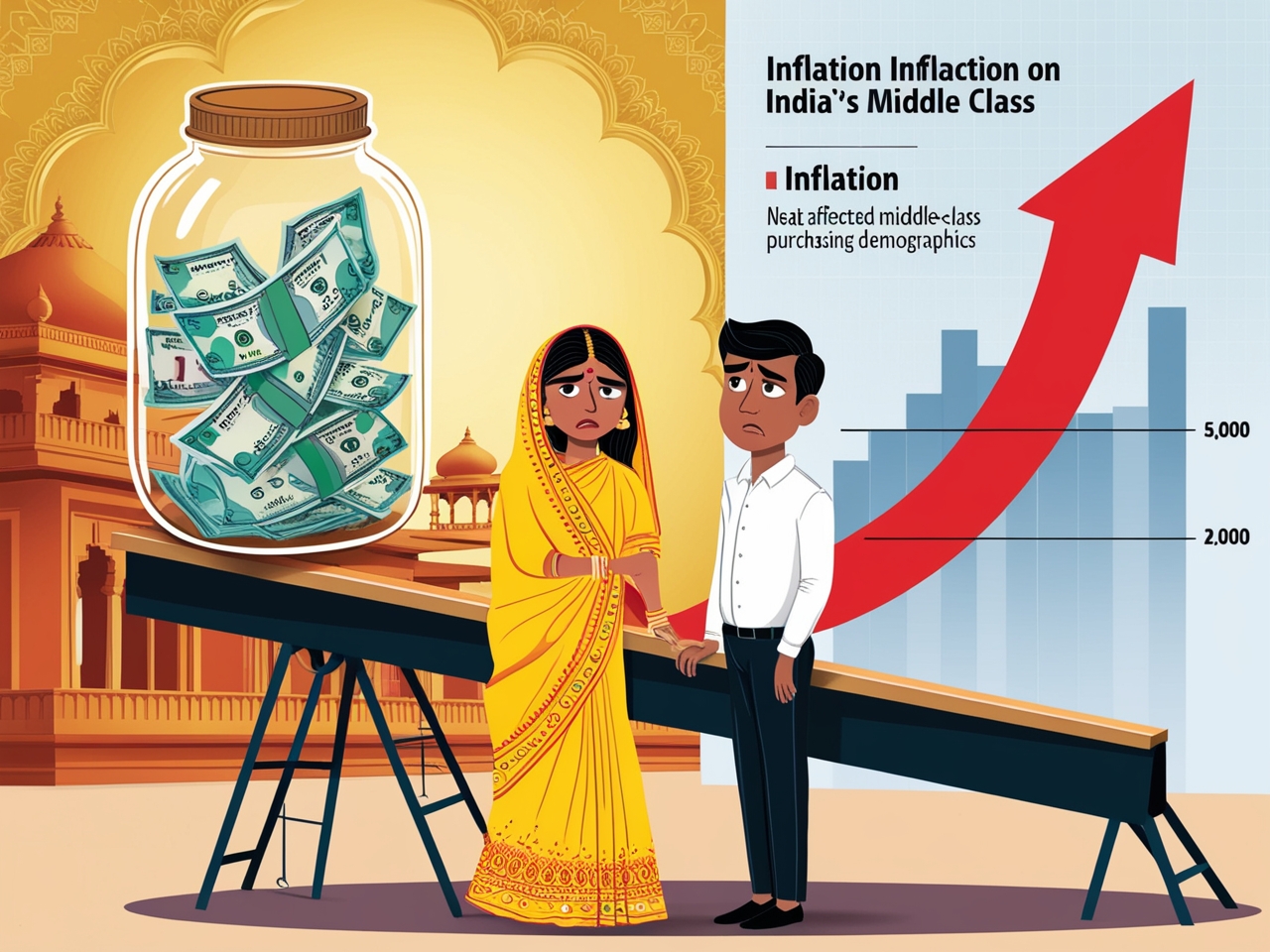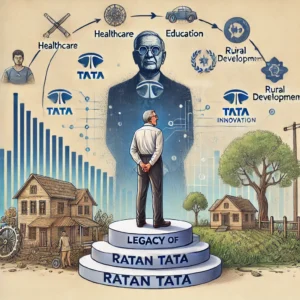Everyone experiences inflation when prices rise, and the money in our wallets ends up buying less. For India’s middle class, this is much more difficult, as they usually have a fixed income and limited savings. In this article, we will explain in detail what inflation is, how it affects the middle class in India, and what they can do to protect their money and make smart financial choices.
What is inflation?
Inflation simply means the increase in the price of goods and services over time. Imagine you could buy 10 apples for ₹100 a few years ago. Today, for those same ₹100, you might only be able to get 8 apples. As inflation rises, each rupee buys fewer goods, which reduces its “purchasing power”.
In India, inflation is typically driven by three main factors:
- Increased cost of making a product – When the cost of raw materials, labor or transportation goes up, companies raise prices to cover these costs.
- Higher demand – If more people want a product than there are products available, companies can charge a higher price.
- International events – Events like a global pandemic or war can disrupt supply chains, which increases import costs and ultimately leads to a rise in prices in India.
For India’s middle class, these rising prices can mean adjusting budgets, saving less or even cutting down on essentials.

How inflation affects the middle class in India
1. Everyday expenses and monthly budget
Inflation makes everyday items like groceries, transportation, and utilities more expensive. Many middle-class families have to increase their budgets to keep up with rising prices. For example, groceries that used to cost ₹5,000 may now require ₹6,000, which can be challenging if salaries are not rising at the same pace.
2. The value of savings erodes
A big worry for middle-class families is that inflation can eat away at their savings. If you keep your money in a regular savings account, the interest you earn on it may not grow with inflation. It works like this:
- Imagine you save ₹1,00,000 in a bank account with a 4% interest rate. If inflation is at 6%, the value of your money is actually declining as the cost of goods is rising faster than your savings.
- Investments such as fixed deposits, which have been an option for many families, do not always offer returns that outpace inflation, resulting in a loss of real wealth over time.
3. Housing and Real Estate
Often property prices rise with inflation, which can have mixed results for the middle class:
- For existing homeowners: The value of their property may rise, which is good for long-term wealth. However, property taxes, maintenance costs and utilities also rise with inflation, making home maintenance more expensive.
- For renters or new buyers: Higher property prices mean that renting or buying a home becomes more challenging. Middle-class families who dream of owning a home may find it difficult to afford a down payment or handle higher loan EMIs.
4. Loans become expensive
When inflation rises, the Reserve Bank of India (RBI) may increase interest rates to control it. This impacts loans, such as:
- Home loans and car loans: Higher interest rates mean bigger EMI payments. So, a middle-class family paying an EMI of ₹15,000 may see it increase to ₹18,000, reducing the amount left for other expenses.
- Personal loans: These also become more expensive, making it difficult to borrow money for emergencies or big purchases.
5. Impact on retirement savings
Inflation erodes the value of money over time, which is particularly worrying for retirement savings. If a middle-class family plans to retire with ₹50 lakh, that amount may not cover all expenses as prices keep rising. This means families need to save more than they initially planned, which can put a strain on current finances.
How can India’s middle class tackle inflation?
The effects of inflation can be managed with the right financial strategies. Here are some steps that middle-class families can take to protect and grow their wealth despite rising prices:
1. Diversify investments
Instead of keeping all savings in one place, it is wise to spread investments across different options that have the potential to grow faster than inflation:
- Equities (stocks): Stocks are risky, but often offer better returns over time. Investing in good companies can help you beat inflation.
- Mutual funds: SIPs (systematic investment plans) allow you to invest small amounts regularly in mutual funds, which can help grow wealth steadily.
- Gold and real estate: These assets typically increase in value during inflation, which can protect the value of your money.
2. Create an emergency fund
It is always wise to set aside money for emergencies, especially when inflation causes unexpected price increases. An emergency fund should cover at least six months of expenses and protect your finances from shocks.
3. Use inflation-protected investment options
Instruments like inflation-indexed bonds offered by the government offer inflation-linked returns. This means that as prices rise, so do returns, which helps protect the value of your money. These are a great option for those who want low-risk investments.
4. Invest in skills and education
Improving skills can increase your earning potential and give you an edge in a competitive job market. With more income, it is easier to handle rising costs without cutting down heavily on other financial goals.
What’s in store for the future?
Inflation is affected by many global and national factors, including government policies, economic growth, and international trade.
The government attempts to control inflation through monetary policies such as adjusting interest rates and fiscal policies such as changing taxes or government spending. For middle-class families, adapting to inflation means balancing today’s needs with tomorrow’s goals.
Inflation may not be something we can control, but by understanding its impact and making smart financial moves, India’s middle class can still work toward a secure and stable financial future.
Conclusion
Inflation is a complex challenge, especially for middle-class families in India. From increasing everyday costs to eroding the value of savings, inflation affects almost every aspect of financial life. However, by planning carefully and using financial instruments wisely, families can protect their wealth and even grow it over time.
By diversifying investments, maintaining an emergency fund, and constantly upgrading skills, the middle class can stay prepared and resilient. Inflation may be inevitable, but understanding it and preparing for it can help secure a financially stable future for India’s middle class.









